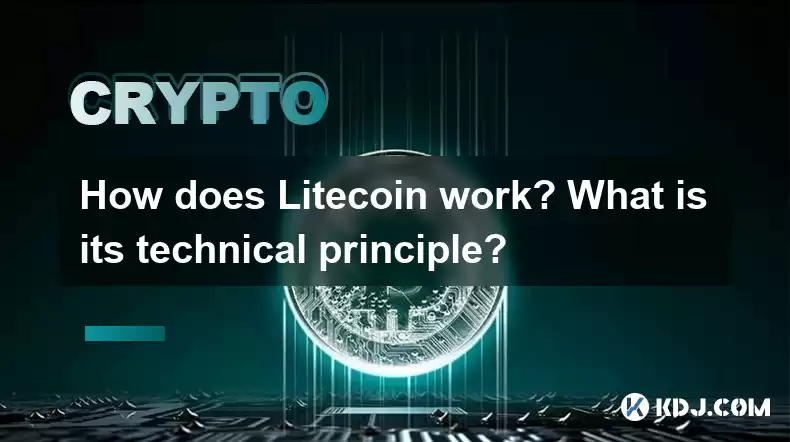-
 Bitcoin
Bitcoin $119600
0.72% -
 Ethereum
Ethereum $4175
-0.54% -
 XRP
XRP $3.207
0.44% -
 Tether USDt
Tether USDt $0.9997
-0.03% -
 BNB
BNB $795.8
-0.80% -
 Solana
Solana $178.4
-0.74% -
 USDC
USDC $0.9998
-0.01% -
 Dogecoin
Dogecoin $0.2273
-2.09% -
 TRON
TRON $0.3405
-0.28% -
 Cardano
Cardano $0.7864
-0.90% -
 Hyperliquid
Hyperliquid $44.43
1.35% -
 Chainlink
Chainlink $21.29
-0.96% -
 Stellar
Stellar $0.4411
0.55% -
 Sui
Sui $3.715
-2.92% -
 Bitcoin Cash
Bitcoin Cash $583.0
2.23% -
 Hedera
Hedera $0.2521
-2.12% -
 Ethena USDe
Ethena USDe $1.000
-0.05% -
 Avalanche
Avalanche $23.18
-1.96% -
 Litecoin
Litecoin $125.0
2.79% -
 Toncoin
Toncoin $3.311
-0.44% -
 UNUS SED LEO
UNUS SED LEO $8.996
-0.53% -
 Shiba Inu
Shiba Inu $0.00001305
-2.49% -
 Uniswap
Uniswap $10.60
-0.11% -
 Polkadot
Polkadot $3.910
-2.51% -
 Dai
Dai $0.9999
-0.03% -
 Cronos
Cronos $0.1640
2.00% -
 Ethena
Ethena $0.7932
4.93% -
 Bitget Token
Bitget Token $4.371
-1.10% -
 Monero
Monero $267.2
-1.09% -
 Pepe
Pepe $0.00001154
-3.46%
How does Litecoin work? What is its technical principle?
Litecoin uses blockchain technology and a proof-of-work consensus mechanism (Scrypt) for faster transactions than Bitcoin. Its decentralized nature ensures security, though energy consumption remains a concern.
Mar 12, 2025 at 05:16 pm

Key Points:
- Litecoin's core functionality revolves around its blockchain technology, a distributed ledger recording all transactions.
- It uses a similar proof-of-work consensus mechanism to Bitcoin, but with faster block generation times and a different hashing algorithm.
- Litecoin's design prioritizes speed and scalability compared to Bitcoin, making it potentially more efficient for everyday transactions.
- Understanding Litecoin's technical details requires knowledge of cryptography, hashing algorithms, and distributed ledger technology.
- Security relies on the decentralization of the network and the computational power required to mine new blocks.
How Does Litecoin Work? What is its Technical Principle?
Litecoin, often described as "silver" to Bitcoin's "gold," operates on a decentralized, peer-to-peer network utilizing blockchain technology. This blockchain acts as a public, immutable ledger, recording every Litecoin transaction chronologically and transparently. Each transaction is cryptographically secured, ensuring its integrity and preventing unauthorized alterations.
The heart of Litecoin's functionality lies in its consensus mechanism: proof-of-work. This means that miners, individuals with powerful computers, compete to solve complex cryptographic puzzles. The first miner to solve the puzzle adds a new block of transactions to the blockchain, receiving a reward in newly minted Litecoins. This process secures the network and validates transactions.
Unlike Bitcoin, which uses the SHA-256 hashing algorithm, Litecoin employs Scrypt. Scrypt is designed to be more resistant to specialized hardware (ASICs) compared to SHA-256, theoretically making it more accessible to individual miners with standard computer hardware. However, ASICs for Scrypt mining do exist.
Litecoin's block generation time is significantly faster than Bitcoin's. While Bitcoin generates a new block approximately every 10 minutes, Litecoin's block time is around 2.5 minutes. This faster block time contributes to quicker transaction confirmation times, making it potentially more suitable for frequent, smaller transactions.
The network's security is paramount. The decentralized nature of the network, coupled with the computational power required for mining, makes it extremely difficult for any single entity or group to control or manipulate the Litecoin blockchain. This distributed nature enhances resilience against attacks and censorship.
Transaction fees in Litecoin are generally lower than Bitcoin's, making it a potentially more cost-effective option for smaller transactions. The fee structure is dynamic, adjusting based on network congestion.
Litecoin's technical principles rely heavily on cryptography. Public and private keys are used to secure transactions, ensuring only the rightful owner can spend their Litecoins. Digital signatures verify the authenticity of transactions, preventing counterfeiting and fraud.
The scalability of Litecoin is another important aspect. While not without limitations, Litecoin's faster block generation time and relatively lower transaction fees contribute to better scalability compared to Bitcoin. However, ongoing development focuses on further improving its scalability.
The Litecoin network is constantly evolving. Developers are actively working on improvements and updates to enhance its efficiency, security, and overall functionality. This ongoing development ensures Litecoin remains a relevant and competitive cryptocurrency.
Litecoin's functionality extends beyond basic transactions. It can be used for various applications, including peer-to-peer payments, online purchases, and as a store of value. Its relatively low transaction fees and faster confirmation times make it attractive for various use cases.
The accessibility of Litecoin is also a key factor in its design. While technical knowledge is helpful for deeper understanding, using Litecoin for basic transactions is relatively straightforward through various wallets and exchanges.
The network's consensus mechanism, proof-of-work, although energy-intensive, ensures the security and integrity of the blockchain. However, the environmental impact of this energy consumption is a topic of ongoing discussion and research within the cryptocurrency community.
The interplay between these aspects – blockchain technology, proof-of-work, Scrypt, faster block times, and network security – defines how Litecoin functions and distinguishes it from other cryptocurrencies.
Frequently Asked Questions:
Q: Is Litecoin a good investment?
A: Whether Litecoin is a good investment depends entirely on individual risk tolerance and market analysis. It's crucial to conduct thorough research and understand the inherent volatility of cryptocurrencies before investing.
Q: How is Litecoin different from Bitcoin?
A: Key differences include Litecoin's faster block generation time (2.5 minutes vs. 10 minutes for Bitcoin), its use of the Scrypt hashing algorithm instead of SHA-256, and generally lower transaction fees.
Q: How secure is Litecoin?
A: Litecoin's security is derived from its decentralized nature and the computational power required for mining. However, no cryptocurrency is entirely immune to security risks.
Q: How can I buy Litecoin?
A: Litecoin can be purchased on various cryptocurrency exchanges. It's important to choose a reputable exchange with robust security measures.
Q: What are the potential risks associated with Litecoin?
A: Risks include market volatility, regulatory uncertainty, security breaches, and technological advancements that could render it obsolete.
Q: What is the future of Litecoin?
A: The future of Litecoin, like any cryptocurrency, is uncertain. Its continued development, adoption, and market conditions will significantly impact its future prospects.
Disclaimer:info@kdj.com
The information provided is not trading advice. kdj.com does not assume any responsibility for any investments made based on the information provided in this article. Cryptocurrencies are highly volatile and it is highly recommended that you invest with caution after thorough research!
If you believe that the content used on this website infringes your copyright, please contact us immediately (info@kdj.com) and we will delete it promptly.
- DYDX Price Stays Afloat: Navigating Neutral Momentum with Technical Indicators
- 2025-08-11 20:50:12
- Superman Takes Flight: A Deep Dive into the Comic Program and Coin Medals
- 2025-08-11 20:30:12
- JasmyCoin's Bullish Momentum: Riding the Daily Gain Wave
- 2025-08-11 21:10:12
- Shiba Inu's Comeback Trail and the Meme Coin Mania: Can $SHIB Deliver a 12,000x Return?
- 2025-08-11 18:30:11
- Proof of Trust, Transparency, and User Safety: Keeping Crypto Real
- 2025-08-11 18:50:12
- Pudgy Penguins, Bitcoin Penguins, and the $22M Meme Coin Mania: A New York Perspective
- 2025-08-11 17:10:11
Related knowledge

How to purchase Aragon (ANT)?
Aug 09,2025 at 11:56pm
Understanding Aragon (ANT) and Its PurposeAragon (ANT) is a decentralized governance token that powers the Aragon Network, a platform built on the Eth...

Where to trade Band Protocol (BAND)?
Aug 10,2025 at 11:36pm
Understanding the Role of Private Keys in Cryptocurrency WalletsIn the world of cryptocurrency, a private key is one of the most critical components o...

What is the most secure way to buy Ocean Protocol (OCEAN)?
Aug 10,2025 at 01:01pm
Understanding Ocean Protocol (OCEAN) and Its EcosystemOcean Protocol (OCEAN) is a decentralized data exchange platform built on blockchain technology,...

Where can I buy UMA (UMA)?
Aug 07,2025 at 06:42pm
Understanding UMA and Its Role in Decentralized FinanceUMA (Universal Market Access) is an Ethereum-based decentralized finance (DeFi) protocol design...

How to buy Storj (STORJ) tokens?
Aug 09,2025 at 07:28am
Understanding Storj (STORJ) and Its Role in Decentralized StorageStorj is a decentralized cloud storage platform that leverages blockchain technology ...

Where to find the best price for Audius (AUDIO)?
Aug 11,2025 at 04:01pm
Understanding the Basics of Ethereum StakingEthereum staking refers to the process of locking up ETH tokens to support the security and operations of ...

How to purchase Aragon (ANT)?
Aug 09,2025 at 11:56pm
Understanding Aragon (ANT) and Its PurposeAragon (ANT) is a decentralized governance token that powers the Aragon Network, a platform built on the Eth...

Where to trade Band Protocol (BAND)?
Aug 10,2025 at 11:36pm
Understanding the Role of Private Keys in Cryptocurrency WalletsIn the world of cryptocurrency, a private key is one of the most critical components o...

What is the most secure way to buy Ocean Protocol (OCEAN)?
Aug 10,2025 at 01:01pm
Understanding Ocean Protocol (OCEAN) and Its EcosystemOcean Protocol (OCEAN) is a decentralized data exchange platform built on blockchain technology,...

Where can I buy UMA (UMA)?
Aug 07,2025 at 06:42pm
Understanding UMA and Its Role in Decentralized FinanceUMA (Universal Market Access) is an Ethereum-based decentralized finance (DeFi) protocol design...

How to buy Storj (STORJ) tokens?
Aug 09,2025 at 07:28am
Understanding Storj (STORJ) and Its Role in Decentralized StorageStorj is a decentralized cloud storage platform that leverages blockchain technology ...

Where to find the best price for Audius (AUDIO)?
Aug 11,2025 at 04:01pm
Understanding the Basics of Ethereum StakingEthereum staking refers to the process of locking up ETH tokens to support the security and operations of ...
See all articles

























































































